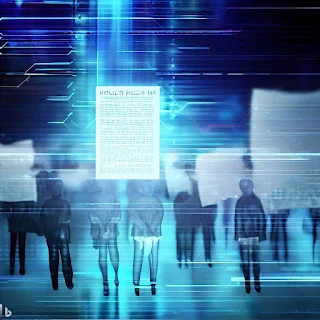Fighting Cyber-Bullying in the Philippines: A Call for Responsible Journalism
 |
Cyberbullying incidents have alarmingly increased recently in the Philippines, impacting people from all walks of life, including public figures, celebrities, and politicians. The public and respectable media outlets have become aware of the detrimental impacts of cyberbullying on victims' mental and emotional health. In this article, we discuss the important subject of cyberbullying and the part that ethical journalism plays in promoting anti-cyberbullying initiatives.
Celebrities have fallen victim to the negative effects of social media, including the renowned musical princess Lea Salonga, the talented Cacai Velasquez, and the former Senator Vicente Sotto III. Cyberbullies have unleashed heinous attacks utilizing social media and even several news outlets, spreading hate and damaging content that has left their targets emotionally damaged. While it is vital for journalists to acknowledge these occurrences, it is critical to avoid sensationalizing or exaggerating such negative behavior. Media outlets can prevent unintentionally propagating this poisonous conduct by avoiding coverage of those who engage in cyberbullying.
We at UiS TV, a Philippine media outlet, have taken a firm stand against cyberbullying. By not identifying bullies by name and denying them a platform for their damaging behavior, we made the decision to deny abusers the satisfaction of notoriety. This strategy sends a strong message that bullies won't receive encouragement or support from respectable journalists, and their actions won't be glorified or applauded.
As journalists, it is our primary responsibility to inform, educate, and inspire the audience by providing relevant news. We might opt to highlight tales that motivate constructive change and promote diversification within the Filipino community rather than concentrating on those that engage in cyberbullying. By doing this, we can encourage a culture that values respect, empathy, and understanding.
It is critical to understand that cyberbullying can have serious negative effects on victims as well as society at large. Its dominance can create a toxic online culture that stifles free speech and discourages people from using social media because they are afraid of becoming targets themselves. This trend needs to be actively countered by responsible media, and readers need to be given the tools to make the internet a more caring place.
Cyberbullying is a problem that has to be addressed immediately. As journalists, we have the ability to impact society's attitudes and the public dialogue. We can help bring about a positive change and make the internet a safer place for everyone. Let's give priority to narratives that improve Filipino lives, promote development, and bolster our group's resolve to combat cyberbullying. Together, we can create a Philippines that is more kind and caring both online and offline.
📷
📹




No comments
Be a part of the discussion! Feel free to leave feedback on our news stories. Your opinion matters. Engage and discuss news.